Liquid collagen is a type of supplement that contains collagen proteins suspended in a liquid, such as purified water. It is designed to benefit the health of hair, skin, nails, and joints. Collagen is a protein that provides structure to various tissues in the body, including the skin, bones, ligaments, tendons, and muscles. Liquid collagen supplements are often hydrolyzed, meaning the collagen is broken down into smaller peptides for easier absorption by the body.
These supplements can come from various sources like beef, chicken, fish, or marine invertebrates. Some potential benefits of liquid collagen include improving skin elasticity, reducing joint pain, and promoting nail strength and growth. It is essential to choose reputable brands that undergo third-party testing for quality and purity when considering collagen supplementation.
Table of Contents

What distinguishes liquid collagen from other supplements that contain collagen?
Liquid collagen differs from other collagen supplements in a few key ways:
Absorption and bio availability:
Liquid collagen is more quickly digested and absorbed into the bloodstream compared to solid supplements like pills or powders. This is because the body has to work harder to extract nutrients from solid forms
Convenience:
Liquid collagen is often sold in pre-made drinks or individual sachets, making it a convenient on-the-go option compared to mixing powders or swallowing pills
Concentration:
Some liquid collagen supplements provide a high concentration of collagen in each serving. For example, Youtheory Collagen Liquid contains 5,000 mg of hydrolyzed collagen per 30 ml packet
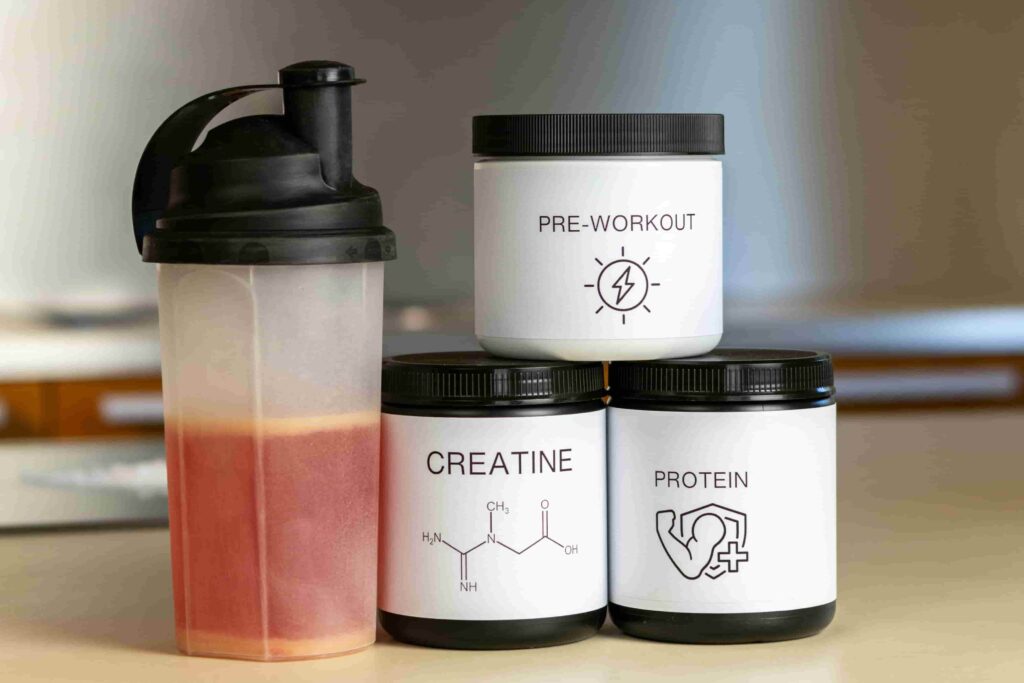
Formulation:
Liquid collagen may contain additional beneficial ingredients like vitamin C, biotin, and amino acids to further support skin, hair, nail, joint and bone health
However, it’s important to note that most research on collagen supplements does not specifically focus on liquid forms. The potential benefits of collagen for skin elasticity, joint pain reduction, and nail strength apply to collagen supplements in general, regardless of whether they are in liquid, powder or pill form.
Benefits of taking liquid collagen over other Collagen Supplements.

The key benefits of taking liquid collagen over other collagen supplements are:
Faster Absorption:
Liquid collagen is more quickly digested and absorbed into the bloodstream compared to solid supplements like pills or powders. This is because the body has to work less to extract the nutrients from the liquid form
Convenience:
Liquid collagen is often sold in pre-made drinks or individual sachets, making it a more convenient on-the-go option compared to mixing powders or swallowing pills
Higher Concentration:
Some liquid collagen supplements provide a higher concentration of collagen per serving compared to other forms. For example, Youtheory Collagen Liquid contains 5,000 mg of hydrolyzed collagen per 30 mL packet
Formulation:
Liquid collagen may contain additional beneficial ingredients like vitamin C, biotin, and amino acids to further support skin, hair, nail, joint and bone health
However, it’s important to note that the potential benefits of collagen for skin elasticity, joint pain reduction, and nail strength apply to collagen supplements in general, regardless of whether they are in liquid, powder or pill form. More research is still needed to determine if liquid collagen has any unique advantages over other collagen supplement formats.

How quickly can you see results from taking liquid Collagen?
You can start seeing results from taking liquid collagen supplements in as little as 4 weeks, with more significant improvements over time:
- In a 2018 study, women aged 35-55 who took a liquid collagen supplement for 12 weeks reported improvements in skin wrinkles, hydration and elasticity
- Another study found that women aged 35-65 who took collagen supplements for 3 months experienced an increase in skin firmness, elasticity and thickness
- A small 2017 study showed that women who took 2.5 grams of specific bioactive collagen peptides once daily for 24 weeks experienced a 12% increase in nail growth and 42% decrease in nail breakage, with improvements seen as early as 4 weeks
- In a 2020 study, researchers concluded that taking 2.5 grams of bioactive collagen peptides daily for 16 weeks increased hair growth
However, it’s important to note that these studies used specific collagen peptides, not necessarily the liquid collagen products available for purchase. More research is still needed on the efficacy of commercially available liquid collagen supplements. Additionally, results may vary from person to person based on factors like age, diet, and overall health. Consistency is key – most studies show the best results when taking collagen supplements daily over an extended period of time.

How long does it take to notice improvements in skin elasticity?
- Improvements in skin elasticity from taking collagen supplements can be noticeable in as little as 4 weeks, with more significant changes seen over time.
- Studies have shown that collagen supplements can improve skin elasticity, moisture, and hydration after a few weeks to a few months of consistent use.
- One study found that participants who took collagen hydrolysate for 60 days showed a statistically significant increase in skin elasticity compared to those taking a placebo.
- Another study demonstrated that women who took collagen peptides for 2 months experienced substantial improvements in skin moisture, elasticity, and a reduction in wrinkling and roughness.
- The effectiveness of collagen supplements on skin hydration and elasticity can vary depending on the source and therapeutic duration of the supplement.
Therefore, while individual results may vary, it is generally recommended to give collagen supplements at least a few weeks to a few months to observe noticeable improvements in skin elasticity and overall skin health.

How does collagen in food compare to collagen supplements for skin health.
When comparing collagen in food to collagen supplements for skin health, it’s important to consider the following points based on the provided sources:
- Collagen-rich foods like bone broth contain collagen, but there is limited evidence on whether consuming collagen-rich foods directly boosts collagen production in the body or provides the same benefits as collagen supplements
- Collagen supplements, typically in the form of hydrolyzed collagen peptides, are broken down forms of collagen that are more easily absorbed by the body compared to whole collagen in food. These supplements are believed to be more effectively absorbed and utilized by the body for skin health benefits
- Studies have shown that collagen supplements can improve skin elasticity, hydration, and reduce the depth of wrinkles, indicating their potential effectiveness for skin health
- While collagen-rich foods can provide essential amino acids involved in collagen production, the direct impact of these foods on skin health and collagen synthesis is not well-established. Research primarily focuses on collagen supplements and their benefits for skin health
In summary, collagen supplements, particularly hydrolyzed collagen peptides, are designed to be more easily absorbed by the body and have shown promising results in improving skin health. While collagen-rich foods can contribute amino acids necessary for collagen production, their direct impact on skin health may not be as well-documented as that of collagen supplements.
How do collagen supplements affect joint health compared to skin health?
Collagen supplements have shown potential benefits for both joint health and skin health, but the evidence is stronger for skin health improvements:

Skin Health:
- Several studies have found that taking collagen supplements can improve skin elasticity, hydration, and reduce wrinkle depth
- In one study, women who took a collagen supplement for 12 weeks had significant improvements in skin wrinkles, hydration and elasticity compared to a placebo group
- Another study demonstrated that women who took collagen peptides for 2 months experienced substantial improvements in skin moisture, elasticity, and a reduction in wrinkling and roughness

Joint Health:
- There is some evidence that collagen supplements may help restore or prevent deterioration of joint cartilage and reduce joint pain
- One review found that hydrolyzed collagen supplements helped promote joint health and reduce joint pain, but more research is still needed to fully determine the effects
- A study in postmenopausal women found that taking 5 grams of collagen peptides daily for 1 year significantly increased bone mineral density in the spine and femur compared to placebo
However, the research on collagen supplements and skin health appears to be more extensive and consistent compared to joint health. More high-quality studies are still needed to conclusively determine the effects of collagen on joint health.
Additionally, it’s important to note that the potential benefits of collagen supplements may vary based on factors like age, gender, and overall health status. Consistency is key – most studies show the best results when taking collagen supplements daily over an extended period of time.
How do collagen supplements impact muscle mass and strength.

Collagen supplements, when combined with resistance training, can help improve muscle mass and strength:
- A 2021 study found that men aged 30-60 who took a collagen supplement and did resistance training for 12 weeks showed increased muscle strength compared to a placebo group that only did the training
- Another study on 53 elderly men with sarcopenia showed that those who did 12 weeks of resistance training while taking 15g of collagen peptides daily had significantly greater increases in fat-free mass (muscle) compared to the placebo group
- The collagen group also had a more pronounced increase in isokinetic quadriceps strength compared to the placebo group after the training program
- Proteomic analysis revealed that the collagen group had more proteins up regulated that were associated with the metabolism of contractile muscle fibers
However, the research is still mixed on the effects of collagen supplements alone on muscle mass and strength. More studies are needed to confirm the benefits and determine the optimal dosage and timing of collagen supplementation in relation to resistance training. The potential mechanisms by which collagen may enhance muscle adaptations are still being investigated. Collagen is rich in amino acids like glycine and proline, but relatively poor in the essential amino acid leucine which is the main trigger for muscle protein synthesis.
In summary, while collagen supplements alone may not significantly impact muscle, combining them with resistance training appears to provide an added boost to muscle mass and strength, especially in older adults. Consistency with both the training and supplementation is key to seeing results.
What are the potential side effects of taking liquid collagen?


The potential side effects of taking liquid collagen supplements include:
Digestive issues:
Some people may experience gastrointestinal side effects such as indigestion, diarrhea, constipation, bloating, and reduced appetite
Skin reactions:
Liquid collagen may cause skin irritation, rashes, acne breakouts, or general skin inflammation in some individuals, potentially due to collagen sensitivity or chemical additives in the supplements
Kidney stones:
Excessive collagen intake can lead to the development of kidney stones. Hydroxyproline, a major collagen amino acid, is disposed of through the kidneys as oxalate, which can trigger kidney stones
Allergic reactions:
Since liquid collagen is derived from animal products, people with allergies to these sources should exercise caution and carefully read the ingredient list before taking collagen supplements
Interactions with medications:
It is unclear whether liquid collagen might interact with other medications or supplements. Consulting a healthcare provider before starting collagen supplementation is advisable to discuss any potential interactions
However, it’s important to note that side effects are generally rare when taking liquid collagen, and most people tolerate it well. As with any supplement, it is crucial to stick to the recommended dosage guidelines from the manufacturer or healthcare provider.


How can I minimize the risk of gastrointestinal side effects when taking liquid collagen?
To minimize the risk of gastrointestinal side effects when taking liquid collagen, consider the following tips based on the provided sources:

Consult a Healthcare Professional:
Before starting any supplement regimen, including liquid collagen, it is advisable to consult with a healthcare provider. They can provide personalized advice based on your health status and potential risks
Choose High-Quality Products:
Opt for high-quality liquid collagen products from reputable sources. Ensure the product undergoes third-party testing for quality and purity to reduce the risk of adverse effects
Follow Dosage Instructions:
Stick to the recommended dosage guidelines on the product label. Studies suggest that daily doses of between 2.5 to 15 grams of collagen peptides may offer benefits, but it’s essential to follow the instructions provided by the manufacturer
Start Slowly:
If you are new to taking collagen supplements, consider starting with a lower dose and gradually increasing it to allow your body to adjust and minimize the risk of digestive issues
Stay Hydrated:
Ensure you drink an adequate amount of water throughout the day when taking liquid collagen. Proper hydration can help support digestion and reduce the likelihood of gastrointestinal discomfort
Monitor Your Symptoms:
Pay attention to how your body responds to the liquid collagen supplement. If you experience any persistent or severe gastrointestinal side effects, discontinue use and consult a healthcare professional
By following these guidelines and being mindful of your body’s response, you can help minimize the risk of gastrointestinal side effects when taking liquid collagen supplements.
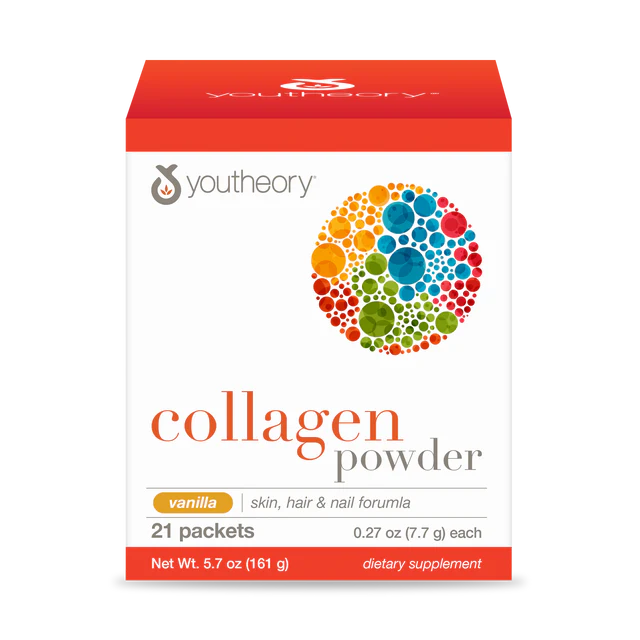
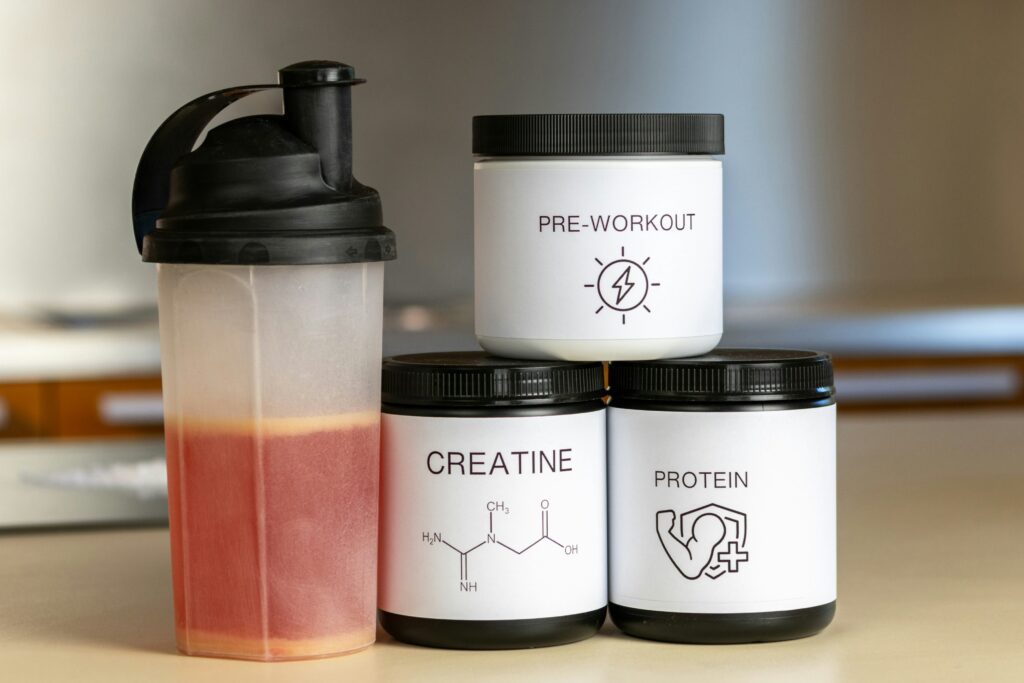
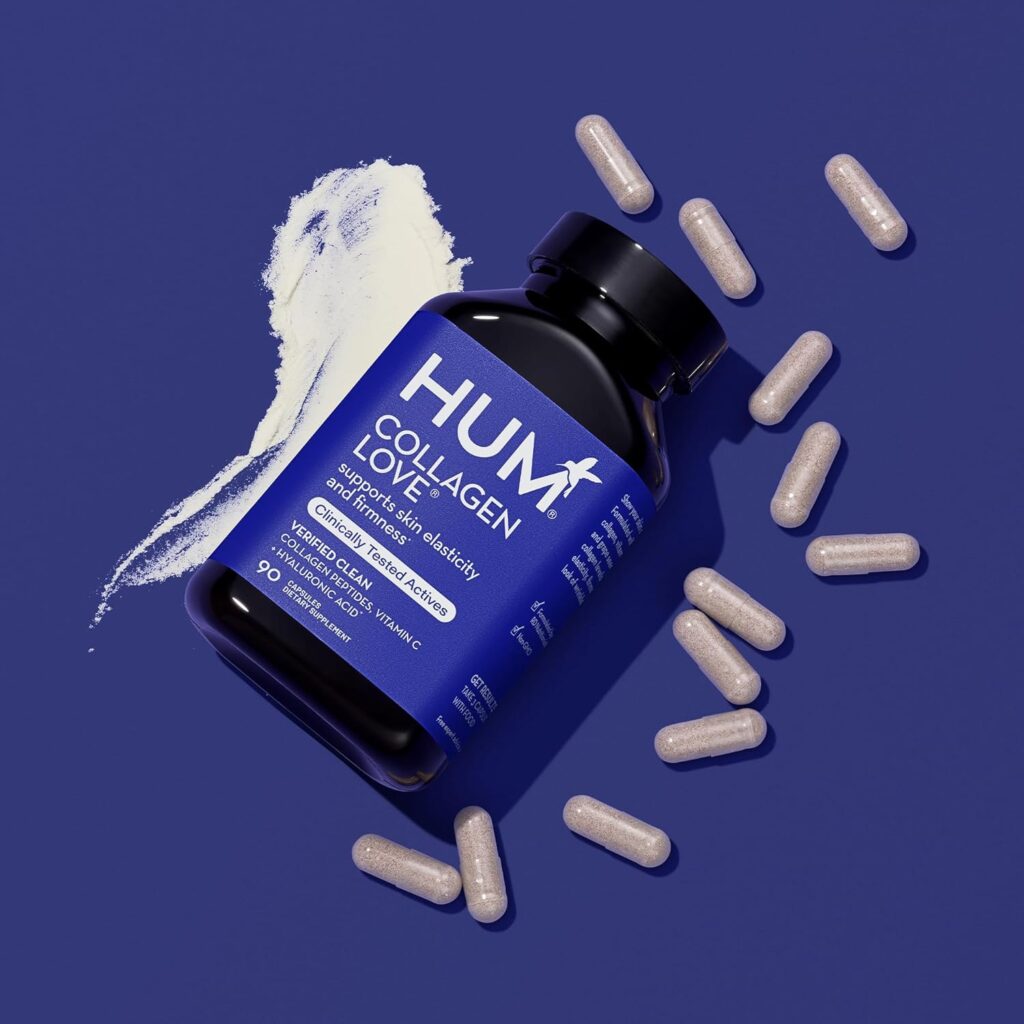
Are there any specific brands of liquid collagen known for having fewer side effects?
While there are no specific brands of liquid collagen known for having fewer side effects, there are some general tips to minimize the risk of side effects when taking liquid collagen supplements:
Choose High-Quality Products:
Opt for high-quality liquid collagen products from reputable sources. Ensure the product undergoes third-party testing for quality and purity to reduce the risk of adverse effects
Consult a Healthcare Professional:
Before starting any supplement regimen, including liquid collagen, it is advisable to consult with a healthcare provider. They can provide personalized advice based on your health status and potential risks
Follow Dosage Instructions: Stick to the recommended dosage guidelines on the product label. Studies suggest that daily doses of between 2.5 to 15 grams of collagen peptides may offer benefits, but it’s essential to follow the instructions provided by the manufacturer
Start Slowly:
If you are new to taking collagen supplements, consider starting with a lower dose and gradually increasing it to allow your body to adjust and minimize the risk of digestive issues
Stay Hydrated:
Ensure you drink an adequate amount of water throughout the day when taking liquid collagen. Proper hydration can help support digestion and reduce the likelihood of gastrointestinal discomfort.
By following these guidelines and being mindful of your body’s response, you can help minimize the risk of side effects when taking liquid collagen supplements.
What should I do if I experience side effects from liquid collagen?

If you experience side effects from taking liquid collagen supplements, here are the steps you should take:
Discontinue use immediately:
Stop taking the liquid collagen supplement if you experience any adverse effects like digestive issues, skin reactions, allergic reactions, or any other concerning symptoms
Monitor your symptoms:
Pay close attention to how your body responds after stopping the supplement. See a doctor if symptoms worsen or continue.
Consult a healthcare professional:
Make an appointment with your doctor to discuss the side affects you experienced. Provide details on the specific liquid collagen product you were taking, including the ingredients
Seek emergency care if needed:
If you develop severe symptoms like swelling in the face, mouth or throat after taking collagen, call 911 or go to the nearest emergency department immediately, as this could indicate a serious allergic reaction
Avoid the supplement in the future:
If you determine the liquid collagen was the cause of your side effects, avoid taking that supplement or any collagen supplements containing similar ingredients going forward
Choose a different supplement:
If you still want to take collagen, consult your doctor about trying a different brand or form of collagen supplement that may be better tolerated by your body
The key is to stop taking the supplement at the first sign of any adverse reaction, monitor your symptoms closely, and seek medical care if needed. Consulting a doctor is crucial to determine if collagen supplements are right for you and to identify any potential allergens or interactions.


What are the most common side effects of liquid collagen?
The most common side effects of taking liquid collagen supplements include:
Digestive issues:
Some people may experience gastrointestinal side effects such as indigestion, diarrhea, constipation, bloating, and reduced appetite
Skin reactions:
Liquid collagen may cause skin irritation, rashes, acne breakouts, or general skin inflammation in some individuals, potentially due to collagen sensitivity or chemical additives in the supplements
Heaviness in the stomach and mild diarrhea:
These were reported as minor side effects in some studies on collagen supplements for osteoarthritis
Allergic reactions:
Since liquid collagen is derived from animal products, people with allergies to these sources should exercise caution and carefully read the ingredient list before taking collagen supplements
However, it’s important to note that side effects are generally rare when taking liquid collagen, and most people tolerate it well. As with any supplement, it is crucial to stick to the recommended dosage guidelines from the manufacturer or healthcare provider. If you experience any side effects, discontinue use immediately, monitor your symptoms, and consult a healthcare professional if needed. Choosing a high-quality product from a reputable source can also help minimize the risk of adverse reactions.
What is the recommended dosage for liquid collagen?

The recommended dosage for liquid collagen varies depending on age and specific skin, hair, and nail concerns. Here are the general guidelines based on the provided sources:
For those between 25-35 years old:
Take one daily serving to maintain plump, hydrated skin, healthy hair, and nails.
Between 36-45 years old:
Take two daily servings to support and slow the natural aging process when signs of aging like fine lines, weak nails, and thinner hair appear.
Over the age of 46:
Take three daily servings to firm, refine, and strengthen the skin when a dull complexion, deeper wrinkles, very fine hair, and brittle nails are observed.
Skin concerns:
Start with one daily serving for skin hydration and plumping of fine lines. Increase to two servings for improved elasticity and wrinkle reduction. For fast results, consider three daily servings, split throughout the day for maximum absorption.
Hair concerns:
Take one serving for daily hair maintenance and scalp hydration. Increase to two or three servings for intensive strengthening and hair growth support.
Maximum daily dose:
There is no clinical evidence to support exceeding 10g of marine collagen per day. The recommended maximum dose is three servings per day to avoid wasting collagen and to practice patience for results to show.
These guidelines provide a range of 3 to 9 grams per day, or one to three servings of liquid collagen, depending on age and specific beauty concerns. It’s important to tailor the dosage based on individual needs and desired results.
Are there any specific brands of liquid collagen that are highly recommended?
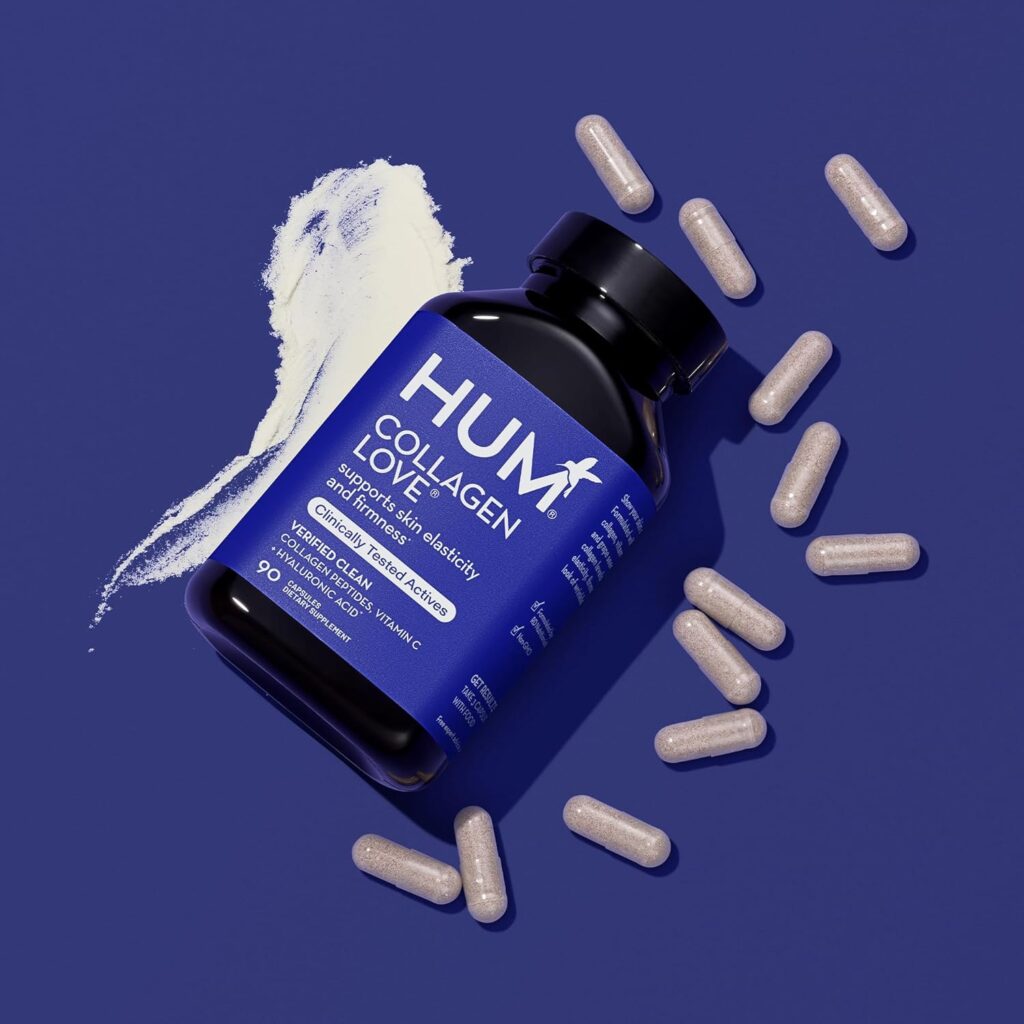
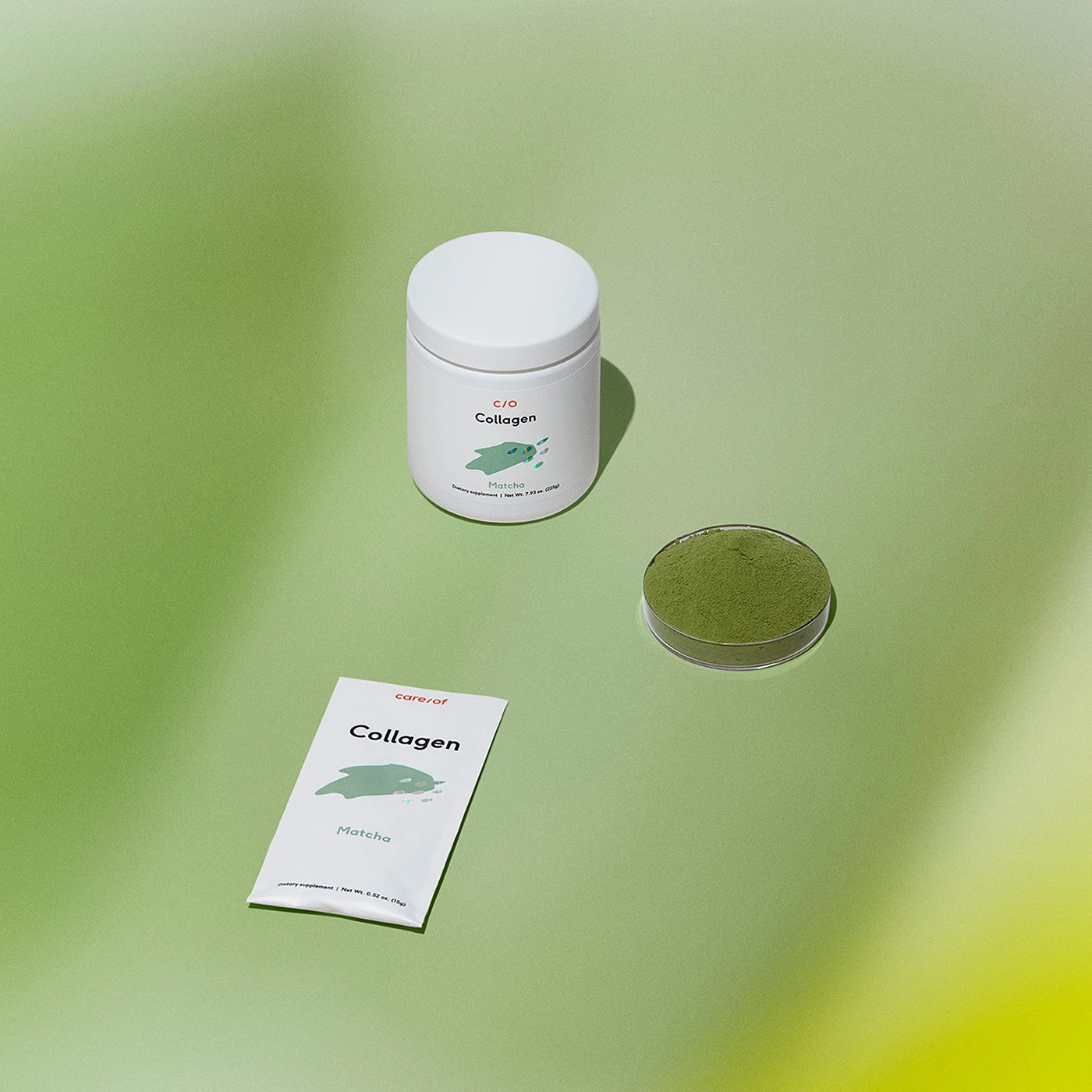
Based on the provided sources, there are specific brands of liquid collagen that are highly recommended for their quality and potential benefits:
Aura Inner Beauty Marine Collagen:
This brand is highlighted as one of the best liquid collagen supplements. It contains hydrolyzed marine collagen and is free from gluten, artificial flavors, and colors. The product is known for its good taste and improvements in hair, skin, and nail health
Care/of Collagen Packs:
Care/of offers collagen packs in various flavors like lemon passion fruit, matcha, and vanilla oat creamer. These packs contain grass-fed bovine collagen and are known for their quality, multiple flavors, and potential benefits for nail strength and skin hydration
HUM Collagen:
HUM produces sustainable, hypoallergenic collagen supplements that do not contain GMOs, gluten, or artificial colors or flavors. Their collagen capsules also contain vitamin C and other antioxidants to promote skin elasticity and firmness
Spoiled child Collagen:
Spoiled child is a brand that sells a liquid collagen supplement called E27 Extra Strength Liquid Collagen.
Spoiled Child Collagen:
Here are the key details about this product:
- It contains collagen types I and III, hyaluronic acid, and vitamin C
- These ingredients are claimed to support skin, hair, nails, and gut health.
- The collagen is available in mango flavor and comes in a 15.21 fl oz bottle
- The recommended serving is 1-2 tablespoons per day.
- Reviews are mixed. Some users reported benefits like less hair shedding, improved skin hydration, and reduced appetite after taking it for 1-2 months. However, others felt the results did not justify the high price compared to other collagen supplements
- A few reviewers noted potential downsides like the inclusion of sucrose (an artificial sweetener) and aggressive marketing tactics from the company
- At $79.99 for a single bottle, Spoiled child collagen is more expensive than many other collagen supplements on the market
- The company offers a subscription option to reduce the price.
In summary, Spoiled child E27 Extra Strength Liquid Collagen is a pricey collagen supplement that some users found effective for skin, hair and nails, while others felt the benefits were not significant enough to justify the cost compared to other brands. More research may be needed on the efficacy of liquid collagen supplements in general.
Main benefits of Spoiled Child Collagen
The main benefits of Spoiled Child Collagen include:
Skin Health:
Spoiled Child Collagen contains types 1 and 3 collagen, hyaluronic acid, and vitamin C, which are specifically formulated to support skin elasticity, hydration, and overall appearance
Bone and Joint Support:
The liquid collagen supplement is claimed to not only benefit skin health but also support bone wellness and joint mobility
Hair and Nail Health:
Collagen is a key protein that supports hair and nail health, and Spoiled Child Collagen, with its blend of collagen peptides, hyaluronic acid, and vitamin C, aims to nurture hair and nail health as well
Convenience and Taste:
Compared to powdered collagen products, Spoiled Child Collagen is more convenient and enjoyable to consume, especially due to its liquid form and pleasant taste, making it potentially more appealing for regular use
Potential Overall Wellness:
Collagen supplementation, especially when combined with hyaluronic acid and vitamin C, may have broader health benefits beyond skin, potentially aiding in overall wellness and hydration
In summary, Spoiled Child Collagen offers benefits for skin, bone, joint, hair, and nail health, along with the convenience of a liquid form and a pleasant taste, making it a comprehensive supplement for overall wellness.



Spoiled Child Collagen compare to other brands
here is a comparison to other collagen brands:
Price:
- Spoiled Child Collagen is noted to be more expensive compared to other collagen products on the market
- Some users found the price to be a downside, especially considering the inclusion of sucralose and the marketing strategy of the company
Ingredients:
- Spoiled Child Collagen contains collagen types I and III, hyaluronic acid, and vitamin C, which are ingredients known to support skin, hair, nails, and gut health. The addition of hyaluronic acid is highlighted as a positive aspect, contributing to overall skin hydration
Taste and Convenience:
- Users have mentioned that Spoiled Child Collagen is more convenient and enjoyable to consume compared to powdered collagen products, especially due to its liquid form and pleasant taste this can make it more appealing for regular use.
Effectiveness:
- Reviews on the effectiveness of Spoiled Child Collagen compared to other brands are mixed. Some users reported benefits like improved skin hydration, reduced hair shedding, and appetite suppression after using Spoiled Child Collagen for a period of time. However, others did not notice significant differences between Spoiled Child Collagen and less expensive powder collagen supplements.
In summary, Spoiled Child Collagen stands out for its unique blend of ingredients, taste, and convenience, but its higher price point and the inclusion of sucrose have been points of concern for some users. The effectiveness of Spoiled Child Collagen compared to other brands may vary depending on individual experiences and preferences.
Side effects of using Spoiled Child Collagen
There are potential side effects associated with using Spoiled Child Collagen, particularly related to the inclusion of sucralose and the overall experience of users:
Sucralose Concerns:
Some users have expressed concerns about the inclusion of sucralose in Spoiled Child Collagen. While sucralose is generally recognized as safe by the FDA, recent studies have suggested that it can lead to inflammation, increased appetite, and alterations in gut microbiome composition, potentially reducing the number of beneficial bacteria
Marketing Strategy:
Users have mentioned receiving a high volume of marketing emails from Spoiled Child, which has been a point of annoyance for some customers
Effectiveness and Price:
While Spoiled Child Collagen is more expensive than other collagen products, some users have not found the results to be significantly different from less expensive alternatives. This discrepancy in perceived effectiveness compared to the higher price point may be a consideration for potential users.
In summary, the potential side effects of using Spoiled Child Collagen may include concerns related to the presence of sucralose, the marketing strategy of the company, and the perceived effectiveness in relation to the product’s price. Individuals considering using Spoiled Child Collagen should be aware of these factors and consider them when making a decision about incorporating this supplement into their routine.
These brands stand out for their quality, transparency, and potential benefits for skin, hair, and nail health. It’s important to consider individual preferences, dietary restrictions, and specific beauty goals when choosing a liquid collagen supplement.
Contact Us for any Question related to this Article.
FAQs Frequently Asked Questions
What is liquid collagen?
Liquid collagen is a type of supplement containing collagen proteins suspended in a liquid, designed to benefit hair, skin, nails, and joints by providing structural support to various tissues in the body.
What distinguishes liquid collagen from other supplements that contain collagen?
Liquid collagen differs from other forms like pills or powders in terms of absorption, convenience, concentration, and formulation, offering faster absorption, on-the-go convenience, potentially higher collagen concentration, and additional beneficial ingredients.
What are the benefits of taking liquid collagen over other collagen supplements?
The benefits of liquid collagen include faster absorption, convenience, potentially higher collagen concentration per serving, and additional beneficial ingredients that support skin, hair, nail, joint, and bone health.
How quickly can you see results from taking liquid collagen?
Results from taking liquid collagen can be seen in as little as 4 weeks, with more significant improvements over time, such as improved skin elasticity, hydration, joint pain reduction, and nail strength and growth.
How long does it take to notice improvements in skin elasticity?
Improvements in skin elasticity from taking collagen supplements can be noticeable in as little as 4 weeks, with more significant changes seen over a few months of consistent use, especially when combined with a healthy lifestyle.
How do collagen supplements affect joint health compared to skin health?
Collagen supplements have shown potential benefits for both joint health and skin health, with more extensive research supporting skin health improvements. Collagen may help restore joint cartilage, reduce joint pain, and improve skin elasticity, hydration, and wrinkle reduction.
How do collagen supplements impact muscle mass and strength?
Collagen supplements, when combined with resistance training, can help improve muscle mass and strength, especially in older adults. The potential mechanisms by which collagen enhances muscle adaptations are still being studied.
What are the potential side effects of taking liquid collagen?
Potential side effects of taking liquid collagen include digestive issues, skin reactions, kidney stone formation, allergic reactions, and possible interactions with medications. Most people tolerate liquid collagen well, but it’s essential to be aware of these potential side effects.
How can I minimize the risk of gastrointestinal side effects when taking liquid collagen?
To minimize the risk of gastrointestinal side effects when taking liquid collagen, consider choosing high-quality products, following dosage instructions, starting slowly, staying hydrated, and consulting a healthcare professional before starting supplementation.
Are there any specific brands of liquid collagen known for having fewer side effects?
While there are no specific brands known for having fewer side effects, choosing high-quality products, following dosage guidelines, and consulting a healthcare professional can help minimize the risk of side effects when taking liquid collagen supplements.
What should I do if I experience side effects from liquid collagen?
If you experience side effects from taking liquid collagen, discontinue use immediately, monitor your symptoms, consult a healthcare professional, seek emergency care if needed, and avoid the supplement in the future. Prioritizing your health and wellness is crucial.
What is the recommended dosage for liquid collagen?
The recommended dosage for liquid collagen varies based on age and specific beauty concerns, typically ranging from 3 to 9 grams per day, or one to three servings, tailored to individual needs and desired results for skin, hair, and nail health.
Are there any specific brands of liquid collagen that are highly recommended?
Some highly recommended brands of liquid collagen include Aura Inner Beauty Marine Collagen, Care/of Collagen Packs, and HUM Collagen for their quality, transparency, and potential benefits for skin, hair, and nail health. It’s important to consider individual preferences and goals when choosing a liquid collagen supplement.